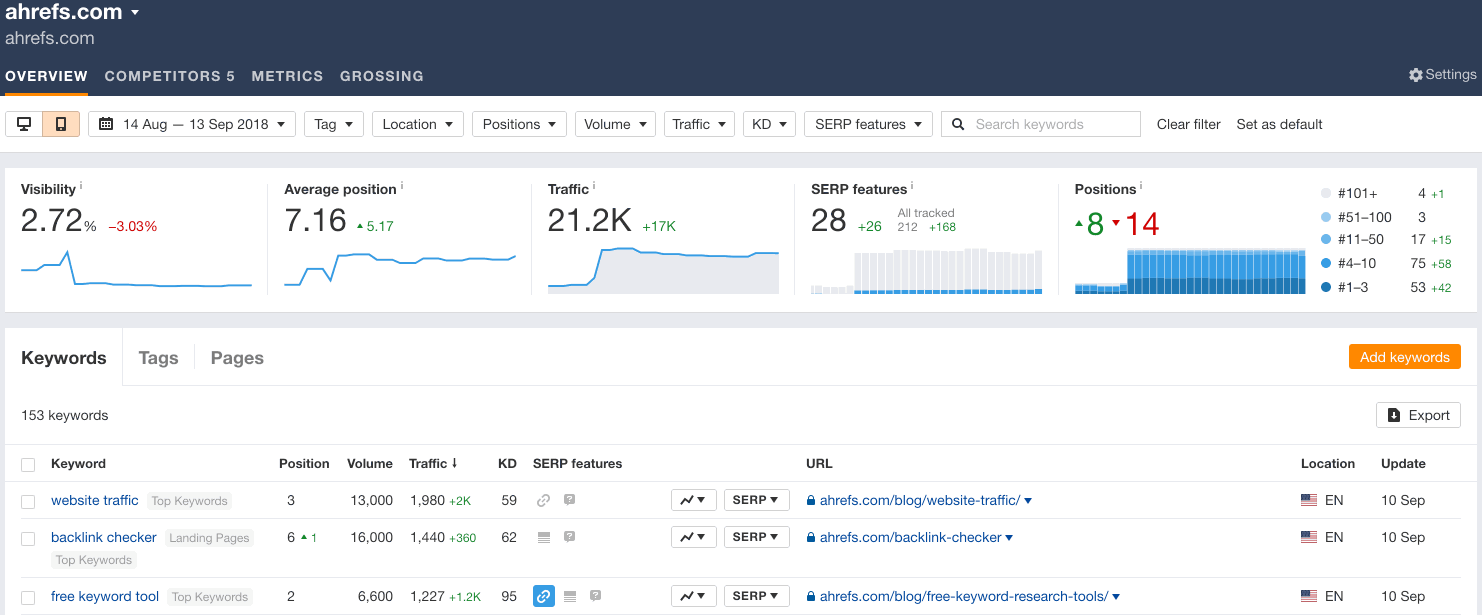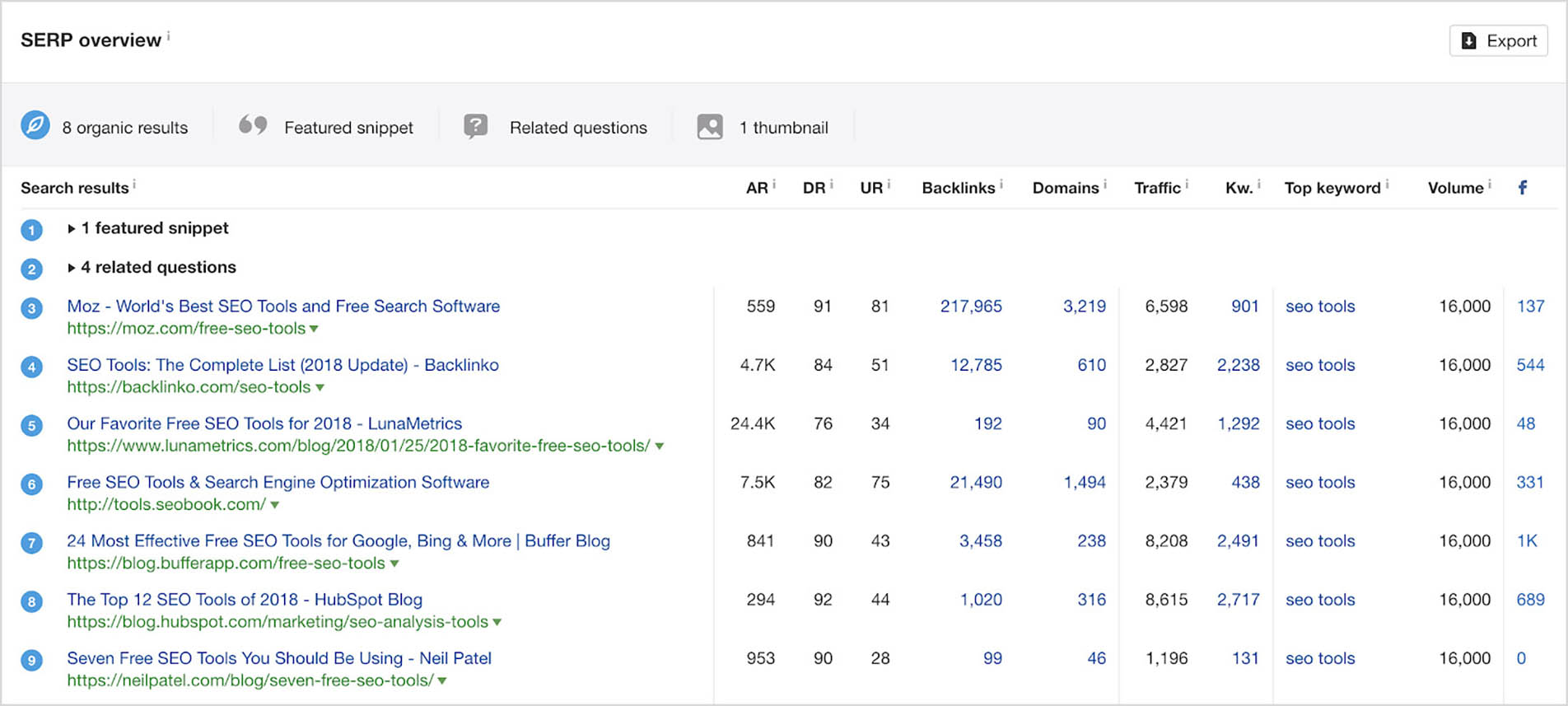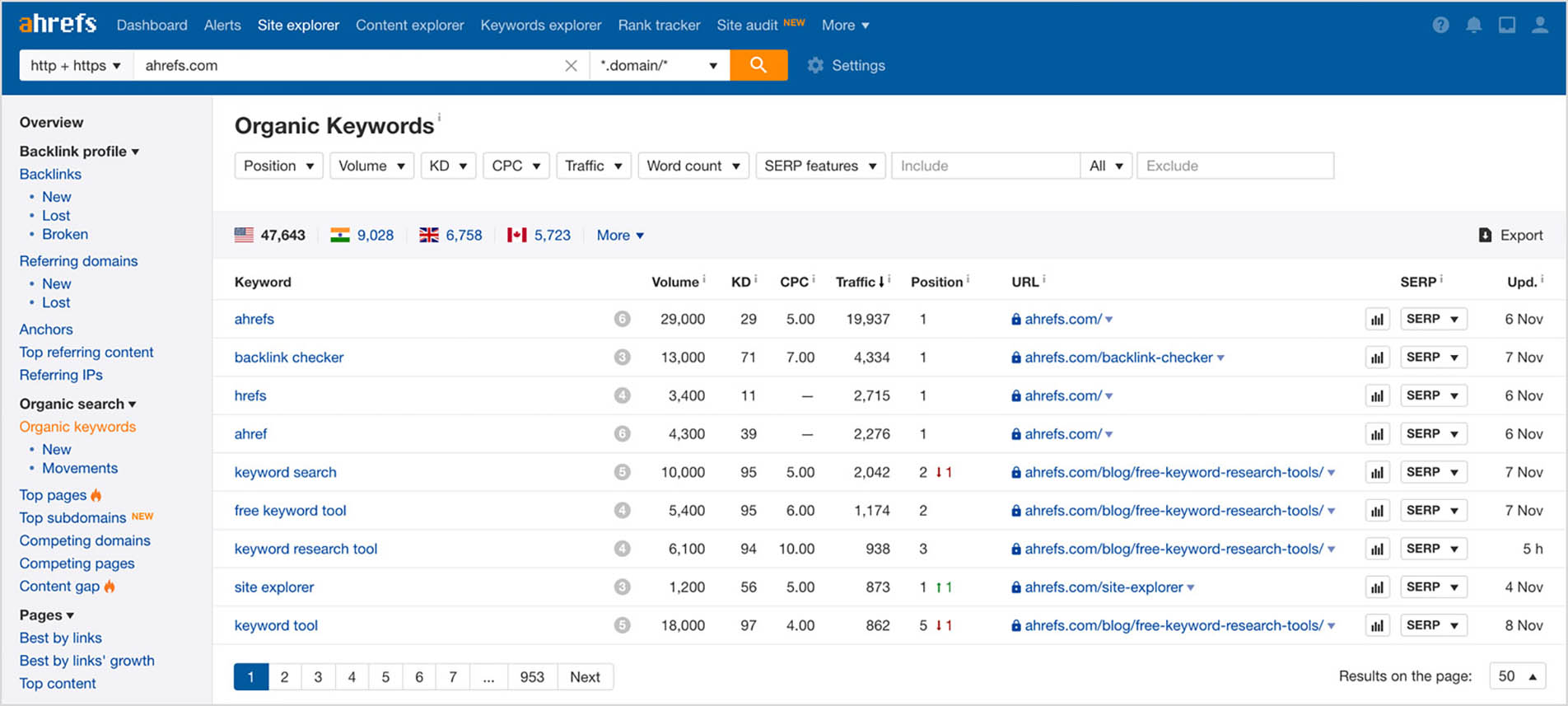Understanding Keyword Rank: How To Get Your Content Seen By More People
Have you ever put something out there online, maybe a new article or a product, and then wondered why it just wasn't getting much attention? It's a pretty common feeling, you know. You work hard to create something good, and then it feels like it just disappears into the vastness of the internet. This feeling often comes from not quite getting how search engines decide what to show people, and that, in a way, brings us right to the idea of keyword rank. So, what exactly is this "keyword rank" everyone talks about?
Basically, it's about where your content shows up when someone types words into a search engine, like Google. Think of it like a popularity contest for your website or your ads. If you're higher up on the list, more people will see you, and that can make a really big difference for your online presence, or even your business. It's about being visible, and that visibility is, arguably, everything in the digital space today.
Getting a good spot, a strong keyword rank, can feel a bit like guesswork sometimes, especially if you're just starting out. But honestly, it doesn't have to be. We want to help you cut through all that noise and find ways to get your content in front of the right folks, which can lead to more visitors, more potential customers, and more success for whatever you're doing online. This guide will help you get a better handle on what it all means and how you can, perhaps, improve your own standing.
- Pokimane Nipslip.linkmaz
- Preet Jatti Viral Mms.linkmaz
- Camilla Araujo Only Fans Porn Videos.linkmaz
- Celebrity Viral Mms Porn.linkmaz
- Exploring Xvdo A Comprehensive Guide To Video Streaming.linkmaz
Table of Contents
- What Exactly is Keyword Rank?
- Why Does Keyword Rank Matter So Much?
- How Search Engines Figure Out Your Keyword Rank
- Checking Your Keyword Rank: Tools and Tips
- Improving Your Keyword Rank: Practical Steps
- Frequently Asked Questions About Keyword Rank
What Exactly is Keyword Rank?
At its heart, keyword rank simply means your position in search results for a specific word or phrase. When someone types something into Google, or Bing, or even YouTube, the search engine shows a list of results. Your keyword rank is where your content or ad appears on that list. A higher rank means you're closer to the top, which is, you know, usually where everyone wants to be.
Keywords: The Core Idea
Before we get too deep into rank, let's just make sure we're on the same page about what a "keyword" actually is. Basically, keywords are the ideas and topics that give your content its meaning. They are, in a way, the words and phrases people type into search engines when they're looking for something. We sometimes call these "search queries." Think about it: if you take all the images, videos, and words on your page and boil them down to simple terms, those are your keywords. It's almost like that new game, Keyword, from the Washington Post, where you find the word that connects everything; here, keywords connect your content to what people are looking for.
So, when you're thinking about creating something, whether it's an article or an ad, you're really thinking about what words people might use to find it. This is, you know, pretty fundamental. Google autocomplete, for instance, is a feature that actually helps people find those very words. It's a hint at what's popular.
- Filmyzilla Com Movie.linkmaz
- Auctions Mt 19.linkmaz
- Andie Elle Leaked.linkmaz
- Damson Idris Father.linkmaz
- Barron Trump Height Disease.linkmaz
The Search Engine's Role
Search engines, like Google, have a big job. They try to give people the most relevant and useful information for whatever they're searching for. When you search, the engine looks through billions of pages and ads to find the best matches. Your keyword rank is a result of how well the search engine thinks your content matches what someone is looking for, and also how good your content is compared to other things out there. It's a bit of a complex dance, but it's all about making sure the right information gets to the right person, so.
Why Does Keyword Rank Matter So Much?
You might be thinking, "Okay, so it's about where I show up, but why is that such a big deal?" Well, it's actually pretty simple: people tend to look at the first few results on a search page. If you're on page two, or even further down, it's just a little less likely that anyone will ever see what you've created. That's why having a good keyword rank is, arguably, incredibly important for anything you do online.
Finding Your Audience
A good keyword rank means more people will click on your links. More clicks usually mean more visitors to your website. And more visitors can mean more traffic, more leads, and ultimately, more revenue for your business. It's a direct path, you know, from being found to achieving your online goals. This is why people spend so much time trying to figure out what words will bring people in.
Without people finding your content, all that hard work you put into it might not pay off. It's like having a fantastic store but it's hidden down an alley no one knows about. Getting a good keyword rank is like moving your store to the busiest street in town. That's pretty much what it comes down to.
Being Visible
In the vastness of the internet, visibility is, in some respects, everything. If your content or ads are not appearing high enough for the words people use, then you're basically invisible to them. Keyword rank is your ticket to being seen. It helps you get your ads to the right customers, for instance, if you're using something like Google Ads. It’s about making sure your message reaches its intended audience, which is, you know, a very big deal.
It's not just about getting clicks; it's about getting the *right* clicks. People who are actually looking for what you offer. This is why understanding keyword rank and working to improve it is a core part of being successful online, or so it seems. It just makes sense, doesn't it?
How Search Engines Figure Out Your Keyword Rank
So, how do search engines decide who gets the top spots? It's not just random, you know. There's a lot that goes into it, especially when it comes to ads. Google, for example, has a whole system to figure out where your ad or content should appear. It's quite a sophisticated process, really.
Ad Rank and Quality Score
If you're running ads, something called "Ad Rank" is super important. This is how Google determines your ad's position. A big part of Ad Rank is something called "Quality Score." A higher Quality Score means that your ad and the page it sends people to are more relevant and useful to someone searching for your keyword, especially compared to other advertisers. It's a way for Google to make sure people see good ads, you know?
You can use the Quality Score diagnostic tool to see where you might need to make things better, like your ads, your landing pages, or even your keyword choices. Quality Score can be a valuable tool for finding ways to improve. You can think of it as a general sign of which areas to focus on to make your ads better, rather than just a number to hit. It's more about improvement, actually.
Your click-through rate, or CTR, also contributes to your keyword's expected CTR, which is another part of Ad Rank. A good CTR depends on what you're advertising and where. You can use CTR to see which ads, listings, and keywords are working well for you and which ones need some work. It's pretty helpful for figuring out what resonates with people, so.
Matching Keywords to Searches
Google has ways of figuring out which keyword to use if multiple ones in your ad group match a search term. They pick based on the ranking system. Also, if a keyword isn't exactly the same as a search term, things like dynamic search ads and performance max ads are chosen based on the highest Ad Rank compared to other search keywords in your account. This means Google is always trying to show the very best match for a search, which is, you know, what people expect.
Dynamic search ads work a bit differently from standard keyword-based ads in how they target searches. But even with dynamic search ads, the performance of your keyword ads won't change, and you still have the same amount of control over your account. They are, in fact, ranked the same way as other ads. It's all about that Ad Rank, really.
Checking Your Keyword Rank: Tools and Tips
So, you've got your content out there, maybe even some ads running. Now, how do you know where you stand? Checking your keyword rank is, actually, pretty important. It helps you see what's working and what might need a little adjustment. There are a few ways to go about this, some simple, some a bit more involved.
Simple Ways to Check
One very basic way to check your rank is to just do a search yourself. But here's a tip: always check rankings in incognito mode. This is because search engines often personalize your results based on your past searches and location. Incognito mode gives you a more neutral view, which is, you know, a better picture of what others might see. It's a good first step, anyway.
You can also use browser extensions like Keywords Everywhere or SEOquake. These tools are pretty neat because they display keyword rankings right there when you search on Google. It's a quick and easy way to get a general idea of where things are, so. They can give you a bit of insight without needing to log into complex systems.
More Detailed Reports
For a deeper look, there are some really powerful tools out there. Tools like Ahrefs, Semrush, or Moz give you detailed keyword ranking reports. These reports can show you where your content ranks, and even let you compare your performance with what your competitors are doing. They provide a lot more data, which is, arguably, pretty useful for making smart choices.
These tools can also help you find hundreds of free keyword ideas for Google, Bing, YouTube, and Amazon. They often come with monthly search volumes and keyword difficulty scores, which can be super helpful. Wordstream's free keyword tool, for instance, makes it fast and easy to find the keywords your business needs to drive traffic through search. You can also get real data from Semrush's massive keyword database, which is pretty cool.
Improving Your Keyword Rank: Practical Steps
Knowing where you stand is one thing, but making things better is the goal, right? Improving your keyword rank involves a few key areas. It's about being smart with your choices and making sure your content is top-notch. It's not an overnight thing, you know, but consistent effort really pays off.
Smart Keyword Selection
The first step to a better rank is picking the right words to focus on. This is called keyword research. You want to find words and phrases that people actually search for, and that are relevant to what you offer. Google Ads Keyword Planner, for example, helps you research keywords for your search campaigns. You can use this free tool to discover new keywords related to your business and see estimates of the searches they receive and the cost to target them. It's a very helpful starting point.
Don't get overwhelmed by all the different SEO tools out there. Just start by using Google Keyword Planner effectively for your keyword research. It's a solid foundation. Backlinko also has a guide that breaks down the exact process they use to find keywords that lead to traffic, leads, and revenue. That kind of insight is, you know, pretty valuable. We want to help you cut through the noise and find keywords that actually work.
Remember, keywords are ideas and topics that define what your content is about. In terms of SEO, they're the words and phrases that searchers enter into search engines to discover content. So, picking the right ones is, arguably, the first and most important step. Learn more about on our site for more ideas on picking keywords.
Making Your Content Great
Once you have your keywords, the next big thing is to create really good content. Search engines want to show useful, relevant stuff. If your content is well-written, informative, and actually answers the questions people have, it has a much better chance of ranking higher. It's about giving people what they came for, basically. This means making your content something people will want to spend time with, you know, and perhaps even share.
Think about what your audience truly needs and wants to know. Provide clear, concise information. If your content is a good match for the search query, search engines will be more likely to show it. It's about relevance, and that's a huge factor in keyword rank. So, focus on quality, always.
Getting Ads to the Right People
If you're using Google Ads, improving your keyword rank for ads involves a few specific strategies. Group similar keywords together to show more relevant ads to potential customers. You should group your keywords and ads into ad groups based on your products, services, or other categories. This helps Google understand exactly what your ad is about, which is, you know, pretty important for matching.
Improving your Quality Score is another big one for ads. As we discussed, a higher Quality Score means your ad and landing page are more relevant. You can use the Quality Score to identify where it might be beneficial to improve your ads, landing pages, or keyword selection. This helps Google choose your ad over others if multiple keywords match a given search term. It's all about showing the best ad for the search, so check out for more insights on improving your ad quality.
Frequently Asked Questions About Keyword Rank
Here are some common questions people often have about keyword rank:
How do I check my keyword ranking?
You can check your keyword ranking in a few ways, you know. One simple method is to use an incognito browser window and type in your target keyword to see where your site appears. For more detailed information, tools like Ahrefs, Semrush, or Moz provide comprehensive reports on your rankings and those of your competitors. Browser extensions like Keywords Everywhere can also give you quick insights right on the search results page, which is pretty convenient.
What is a good keyword ranking?
Generally speaking, a good keyword ranking means being on the first page of search results, ideally in the top three positions. Most people click on results that appear at the very top. So, the closer you are to position one, the better your chances of getting clicks and traffic. It's, arguably, the sweet spot for visibility, so aiming for those top spots is always a smart move.
How can I improve my keyword ranking?
Improving your keyword ranking involves a few key things. First, do good keyword research to pick words that people actually search for and that fit your content. Then, create high-quality, useful content that directly answers what people are looking for. For ads, focus on improving your Quality Score by making your ads and landing pages very relevant to your chosen keywords. These steps, you know, usually lead to better visibility over time. You can learn more about general SEO practices from reputable sources like Google's own SEO Starter Guide.
- Hnd765.linkmaz
- Breaking Tan Chuanjin Divorce Public Reaction Insights.linkmaz
- Camilla Araujo Porn Watch Free Videos Explore Now.linkmaz
- Abigaiil Morris.linkmaz
- Xnxx.linkmaz

Free Keyword Rank Checker Tool - Ahrefs

Free Keyword Rank Checker Tool - Ahrefs

Free Keyword Rank Checker Tool - Ahrefs